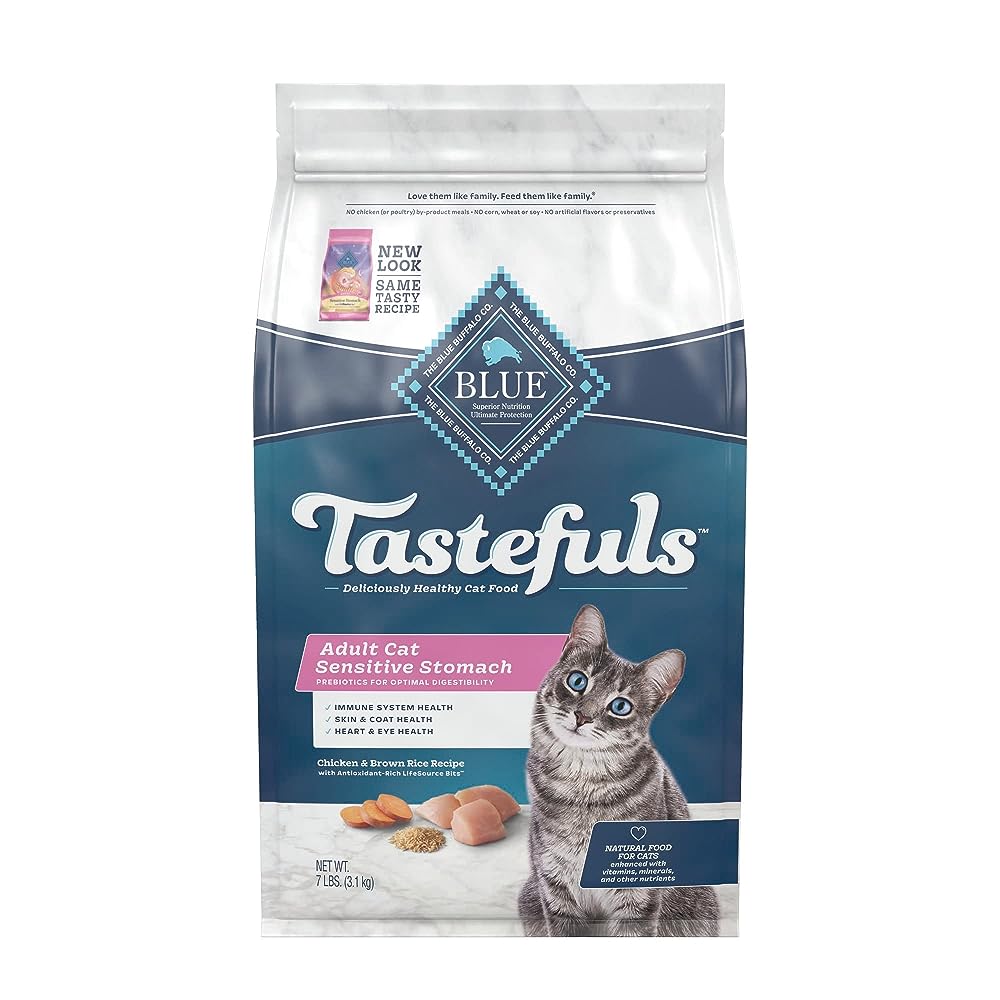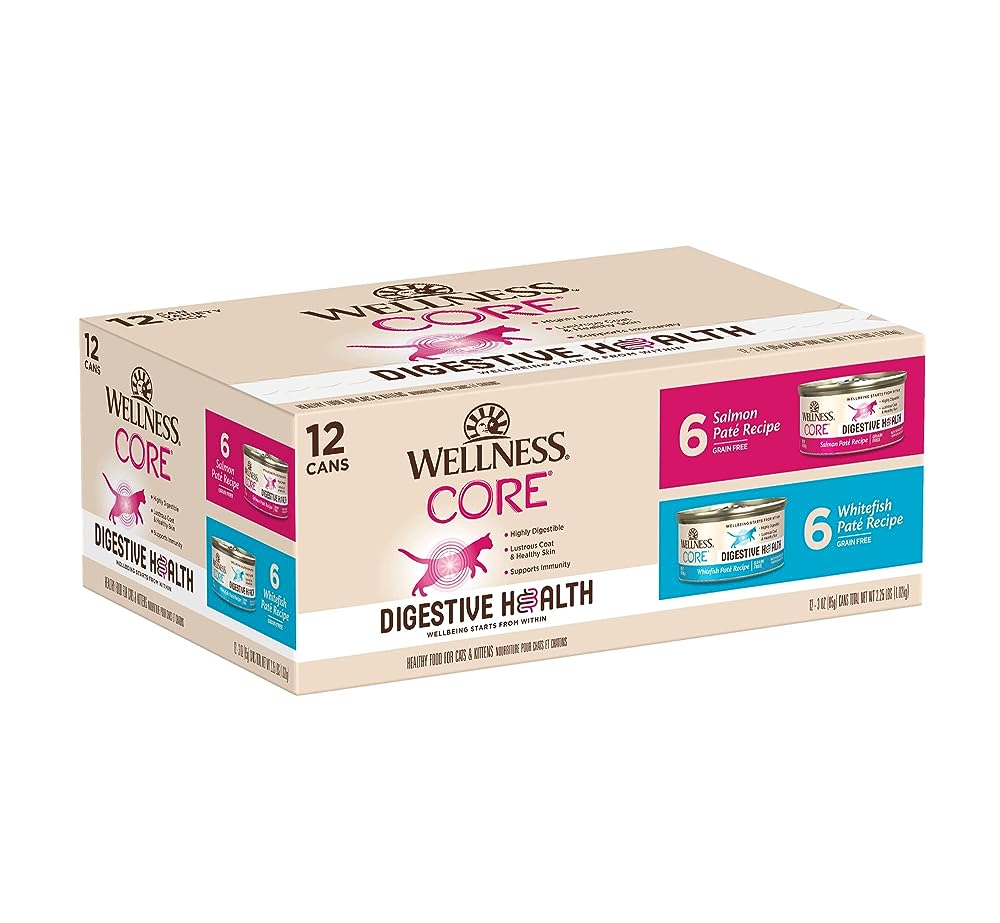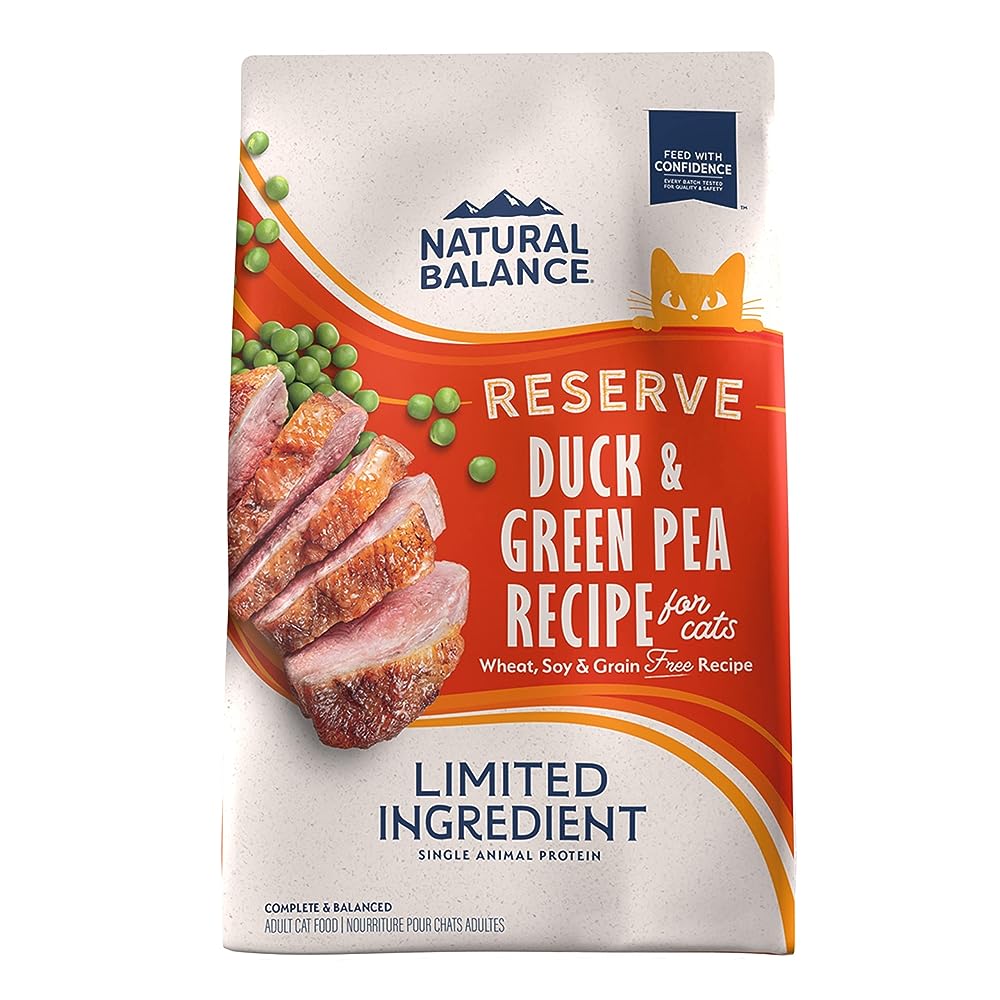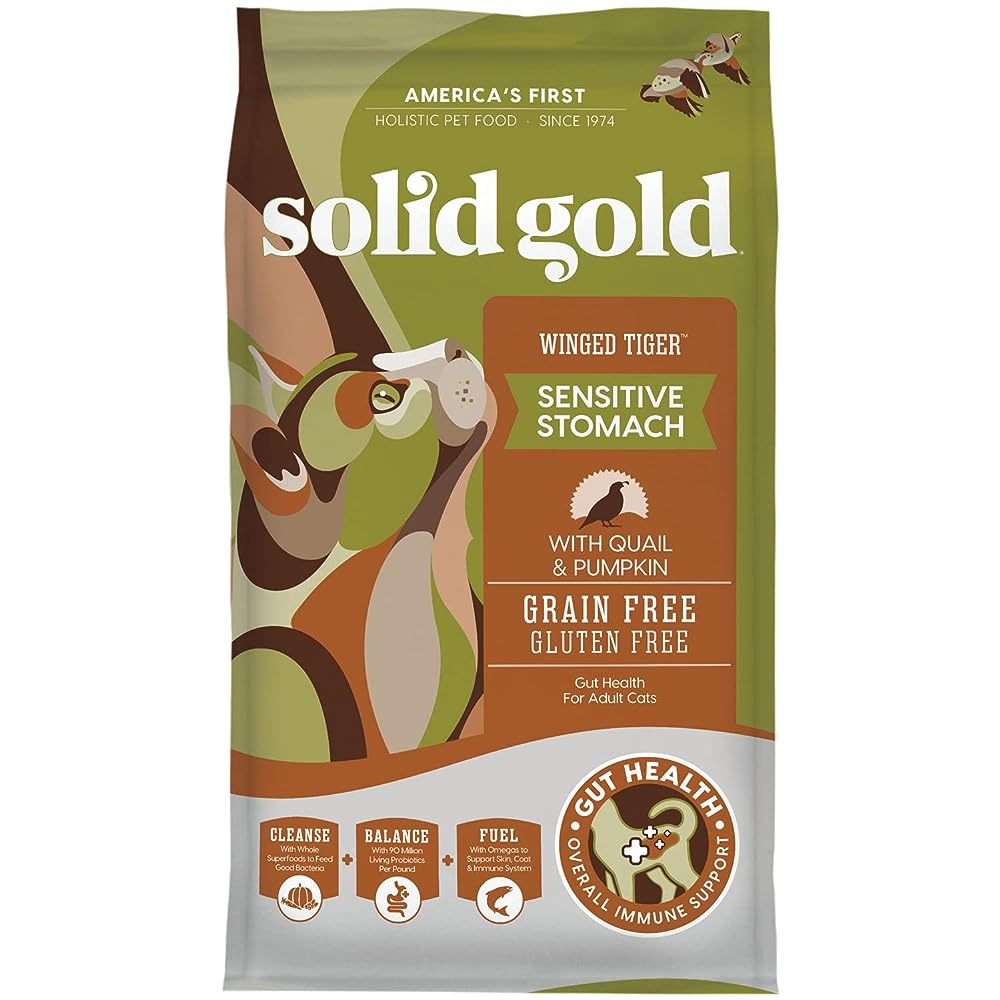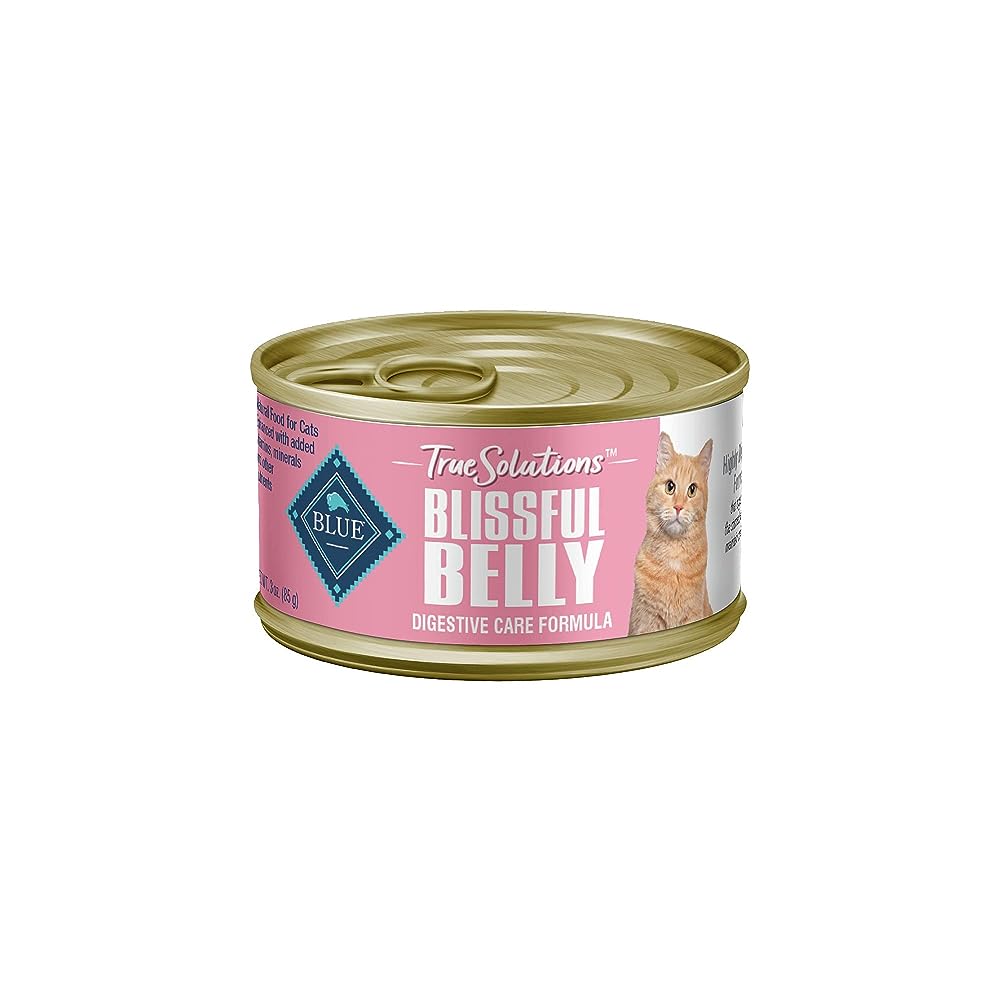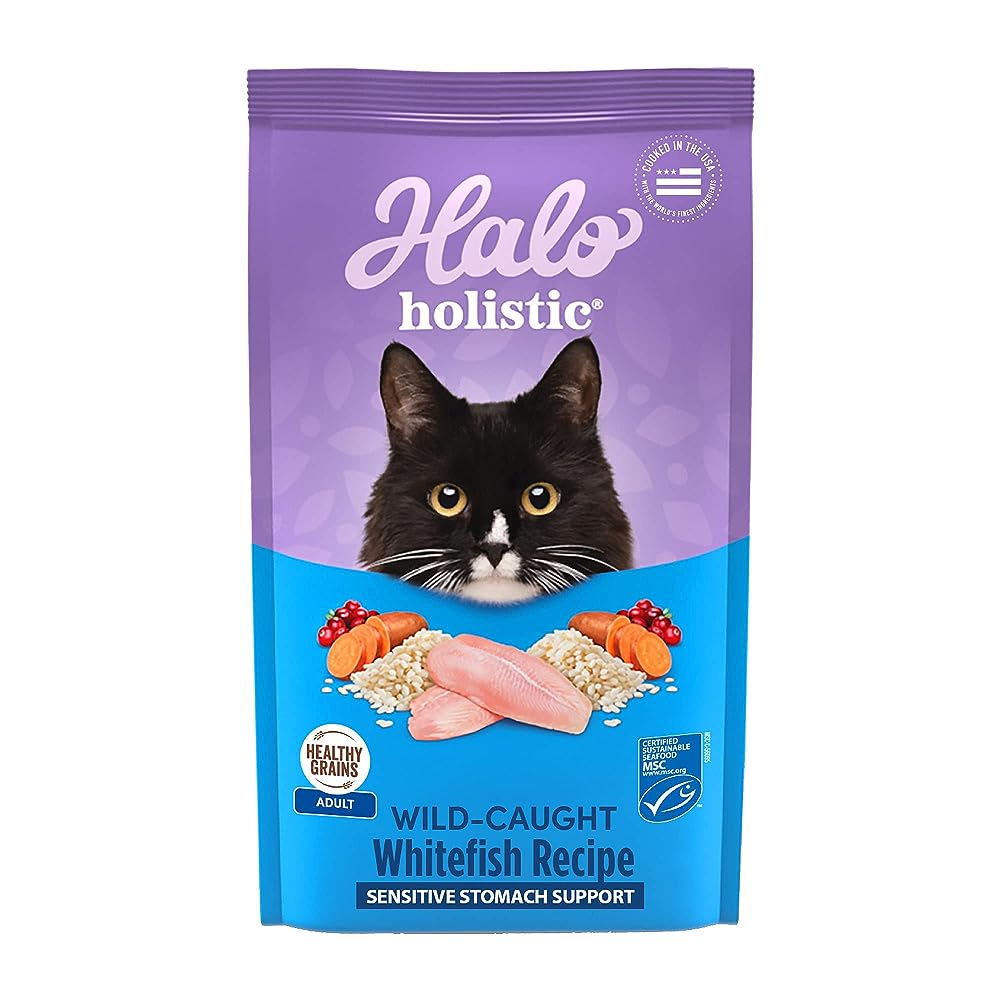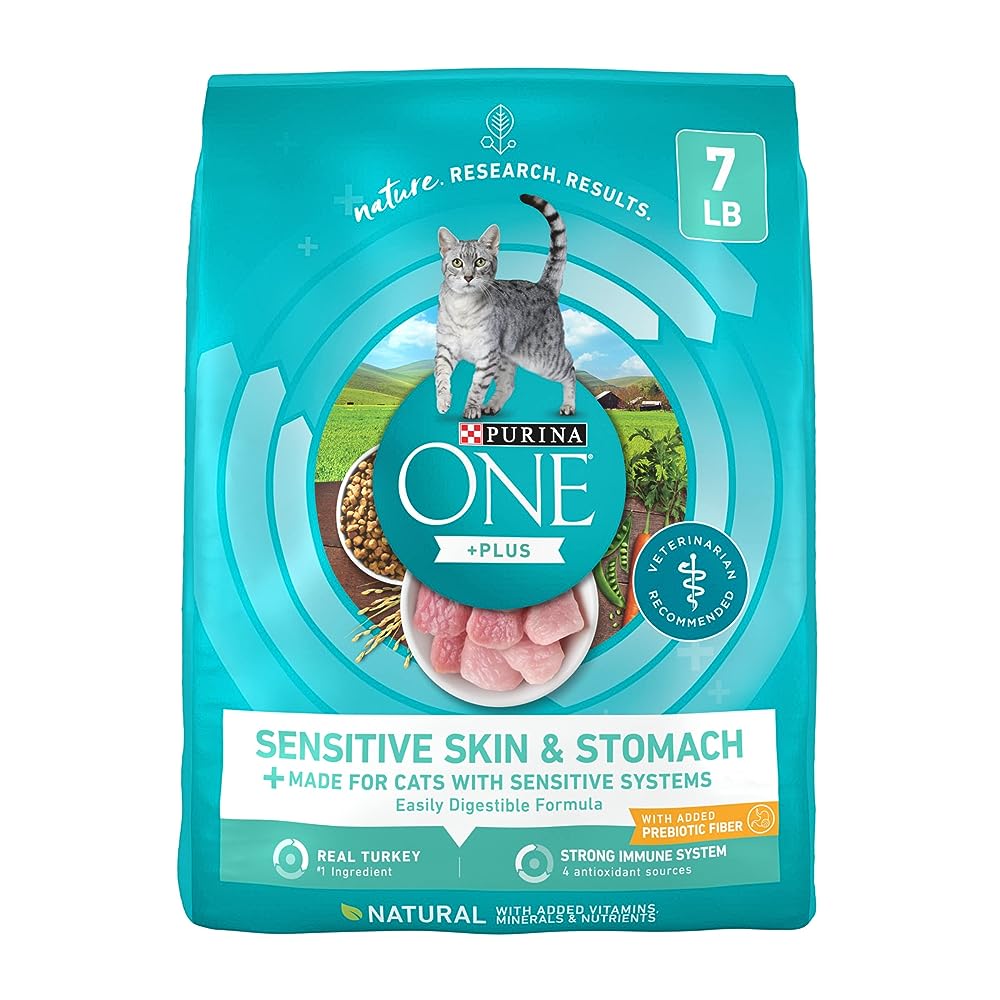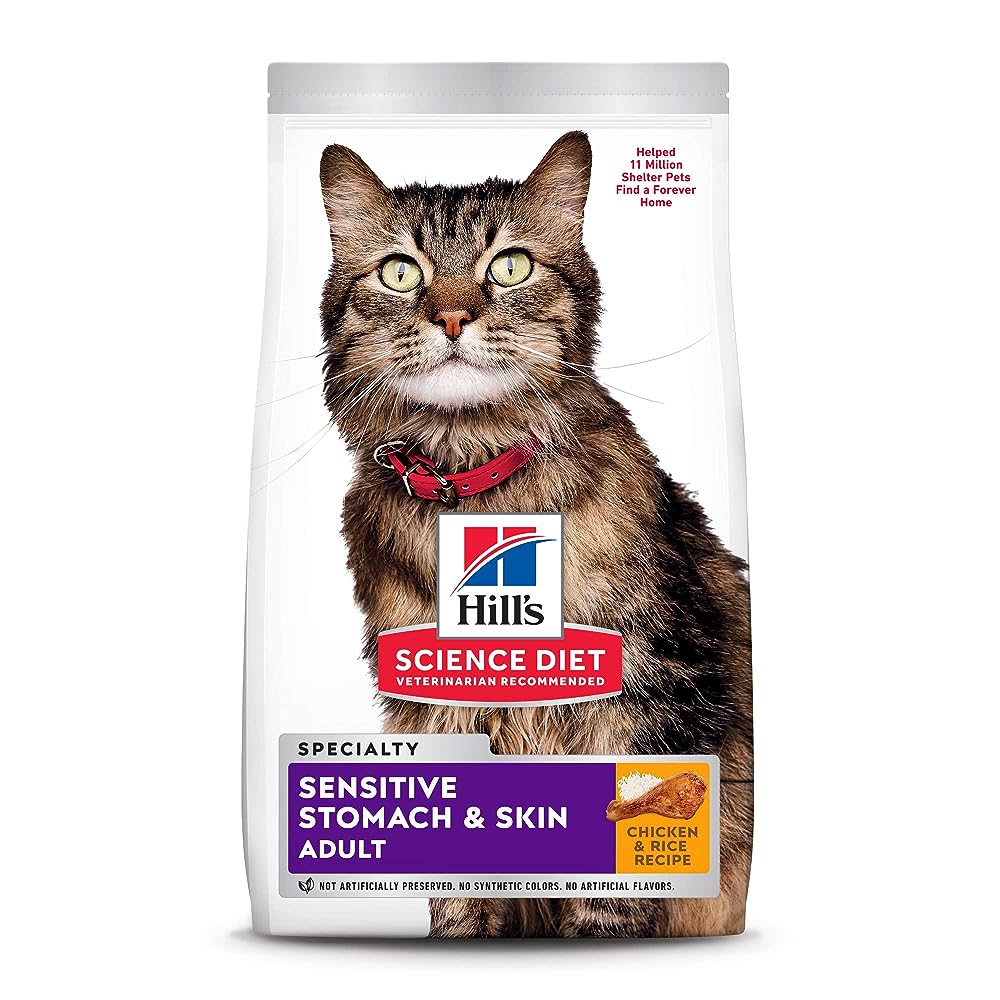Every cat owner knows that our feline friends can sometimes be finicky eaters. However, for some cats, the issue goes beyond mere pickiness; they have sensitive stomachs that require special dietary considerations. A sensitive stomach can manifest in various ways, including frequent vomiting, diarrhea, or constipation. Choosing the right food is paramount not only for their comfort but also for their overall health and well-being. This article delves into the best cat food options tailored for those cats with a sensitive digestive system.
#1 – Blue Buffalo Tastefuls Sensitive Stomach Natural Adult Dry Cat Food, Chicken 7lb bag
Blue Buffalo Tastefuls Sensitive Stomach Natural Adult Dry Cat Food is a cat food formula designed to support the digestive health of cats. Made with real chicken as the first ingredient, this formula contains prebiotics to increase healthy bacteria in the intestine. It also includes BLUE’s exclusive LifeSource Bits, a blend of antioxidants, vitamins, and minerals to support immune system health.
Best For: Cats with sensitive stomachs.
#2 – Wellnes CORE Digestive Health Grain-Free Natural Wet Cat Food, Sensitive Stomach, Easily Digestible (Salmon/Whitefish Variety Pack, 3 Ounce Can, 12 Pack)
The Wellness CORE Digestive Health Grain-Free Natural Wet Cat Food is a high-quality and easily digestible option for cats with sensitive stomachs. Made with real protein, prebiotic fiber, Omega 3 fatty acids, and essential vitamins and minerals, this wet cat food supports digestive health, nourishes the skin and coat, and promotes overall wellbeing. It comes in a seafood variety pack with two flavors: Salmon Pate and Whitefish Pate, providing a smooth and irresistible taste.
#3 – Natural Balance Limited Ingredient Adult Grain-Free Dry Cat Food, Duck & Green Pea Recipe, 10 Pound (Pack of 1)
The Natural Balance Limited Ingredient Adult Grain-Free Dry Cat Food is a duck and green pea recipe designed to provide essential protein and amino acids for strong muscles. It is formulated with a simplified list of premium ingredients, including green peas, salmon oil, and duck, and does not contain grain, soy, gluten, artificial colors or flavors. This cat food is suitable for any type of cat and is part of Natural Balance’s ‘Feed with Confidence’ program, which ensures safety and transparency through batch testing.
Best For: Cats with sensitive stomachs or allergies.
#4 – Solid Gold Sensitive Stomach Dry Cat Food – Made with Real Quail & Pumpkin – Winged Tiger Grain Free Cat Food Sensitive Stomach for Adult & Senior Cats – Supports Immune & Digestive Health – 3lb
The Solid Gold Sensitive Stomach Dry Cat Food is a grain-free cat food made with real quail and pumpkin, designed to support immune and digestive health in adult and senior cats. It is part of Solid Gold’s holistic pet food line, which focuses on using functional superfoods and high-quality ingredients. This cat food is free from fillers like corn and artificial preservatives, making it a healthy choice for cats.
Best For: Sensitive stomachs and digestive health
#5 – Blue Buffalo True Solutions Blissful Belly Natural Digestive Care Adult Wet Cat Food, Chicken 3-oz cans (Pack of 24)
The Blue Buffalo True Solutions Blissful Belly Natural Digestive Care Adult Wet Cat Food is a highly digestible cat food made with natural ingredients recommended by veterinarians. It is formulated with high-quality chicken, fruits, and vegetables, as well as fiber sources that are gentle on the digestive system. This wet cat food is made without wheat, chicken (or poultry) by-product meals, corn, soy, artificial flavors, or preservatives.
Best For: Sensitive stomachs and digestive care.
#6 – Halo Holistic Cat Food Dry, Wild-caught Whitefish Recipe for Sensitive Stomach Support, Complete Digestive Health, Dry Cat Food Bag, Sensitive Stomach Formula, 3-lb Bag
The Halo Holistic Cat Food Dry is a 3-lb bag of dry cat food specifically formulated for cats with sensitive stomachs. Made with real, whole wild-caught whitefish as the first ingredient, this natural cat food provides complete digestive health and supports a healthy skin and coat with its optimal balance of omega fatty acids. Additionally, the cat food is responsibly sourced, made with MSC certified wild-caught fish and contains no antibiotics or unnecessary ingredients.
Best for: Sensitive Stomach Support, Complete Digestive Health
#7 – Purina ONE Sensitive Stomach, Sensitive Skin, Natural Dry Cat Food, +Plus Sensitive Skin and Stomach Formula – 7 lb. Bag
The Purina ONE Sensitive Stomach, Sensitive Skin, Natural Dry Cat Food is a high protein cat food designed for cats with sensitive systems. It contains real turkey as the first ingredient to support strong muscles and a healthy heart. The formula is easily digestible and includes prebiotic fiber, while also promoting strong teeth and healthy gums. With no artificial flavors or preservatives, this cat food is a tasty and nutritious option for cats with sensitive stomachs and skin.
Best For: Cats with sensitive stomachs and skin.
#8 – Hill’s Science Diet Dry Cat Food, Adult, Sensitive Stomach & Skin, Chicken & Rice Recipe, 15.5 lb Bag (8878)
Hill’s Science Diet Dry Cat Food, Adult, Sensitive Stomach & Skin, Chicken & Rice Recipe, is a highly digestible cat food that supports a cat’s sensitive stomach and skin. It contains prebiotic fiber to promote healthy gut bacteria and vitamin E and omega 6 fatty acids to nourish the skin. It is made with natural ingredients and sourced globally but made in the USA.
Best For: Sensitive stomach and skin
Tips for Choosing a Sensitive Stomach Food for My Cat
Certainly! Here are some tips for choosing a sensitive stomach food for your cat:
- Single Protein Source: Opt for cat foods that offer a single protein source, especially novel proteins that your cat hasn’t been exposed to before. Examples include venison, duck, or rabbit. This can reduce the risk of triggering allergies or intolerances.
- Limited Ingredients: Foods labeled as “limited ingredient” can be beneficial as they contain fewer components that might upset your cat’s stomach.
- Avoid Common Allergens: Some cats with sensitive stomachs might actually be reacting to common allergens. Avoid foods with corn, wheat, soy, and dairy products.
- Digestibility Matters: Look for foods that emphasize high digestibility. Ingredients like rice, oatmeal, and barley can be more digestible for some cats.
- Steer Clear of Artificial Additives: Artificial colors, flavors, and preservatives can exacerbate stomach issues for some cats. Always choose natural, wholesome foods.
- Probiotics and Fiber: A balanced blend of soluble and insoluble fibers can promote healthy gut bacteria. Probiotics added to the food can also support digestive health.
- Hydration is Key: Sometimes, wet cat food can be better for cats with sensitive stomachs as they provide hydration and are often easier to digest than dry kibble.
- Transition Slowly: When introducing a new food to your cat, especially one with a sensitive stomach, do it gradually over 7-10 days. This can help prevent further gastrointestinal upset.
- Consult Your Veterinarian: Always involve your veterinarian in the decision-making process. They can provide guidance based on your cat’s specific symptoms and needs.
- Monitor Your Cat: After switching to a new food, observe your cat closely. Monitor for signs of improvement or any worsening of symptoms. Adjustments might be needed based on your cat’s reaction.
Remember, every cat is unique, so it might take some trial and error to find the perfect food for your feline friend. It’s essential to be patient and persistent in your efforts.
Frequently Asked Questions About Cat Foods for Sensitive Stomachs
- What causes a cat to have a sensitive stomach? Some cats naturally have more sensitive digestive systems. Causes can include food allergies or intolerances, sudden changes in diet, infections, parasites, or other underlying health issues.
- How can I tell if my cat has a food intolerance or allergy? Symptoms can include vomiting, diarrhea, excessive gas, and skin irritations. However, always consult with a veterinarian to get an accurate diagnosis and differentiate between an allergy and other health issues.
- Is wet food better than dry food for cats with sensitive stomachs? Wet food can be easier to digest and provides hydration, which can be beneficial for cats with digestive issues. However, the best choice depends on the individual cat and its specific needs.
- What are common allergens in cat foods? Common allergens include beef, dairy products, fish, chicken, grains like wheat and corn, and artificial additives. It’s important to note that any food can cause an allergy, but these are some of the more frequent culprits.
- How long should I try a new food before deciding if it’s right for my cat? When transitioning to a new food, do it gradually over 7-10 days. After fully transitioning, monitor your cat for a few weeks to determine if the new food alleviates or exacerbates symptoms.
- Should I look for grain-free options for my cat with a sensitive stomach? Some cats benefit from grain-free diets, especially if they have a grain allergy. However, grain-free isn’t necessarily needed for every cat with a sensitive stomach.
- What does “limited ingredient” mean, and why might it be beneficial? Limited ingredient diets contain fewer components, focusing on essential nutrients without additional fillers or additives. This can be beneficial as there’s less potential for ingredients that might upset your cat’s stomach.
- Can a cat develop food sensitivities later in life, even if they’ve eaten the same food for years? Yes, cats can develop allergies or sensitivities at any age, even to foods they’ve eaten without issue for years.
- How can probiotics help cats with sensitive stomachs? Probiotics can help balance the gut flora, promoting healthy digestion and potentially aiding in reducing symptoms associated with food sensitivities.
- Should I consult a vet before switching my cat’s food due to a sensitive stomach? Absolutely. It’s essential to involve a veterinarian to ensure the symptoms aren’t due to a more severe underlying issue and to get recommendations tailored to your cat’s specific needs.
Conclusion: Best Cat Foods for Sensitive Stomach
Finding the right food for a cat with a sensitive stomach can seem like a daunting task, but with careful research and observation, it becomes more manageable. Always keep in mind that when transitioning to a new food, it should be done gradually to avoid further upsetting your cat’s stomach. If you’ve tried several foods and haven’t seen improvement, or if symptoms worsen, always consult with a veterinarian. Remember, every cat is unique, and what works for one might not work for another, so patience and persistence are key. With the right dietary adjustments, your cat can lead a comfortable and happy life.

